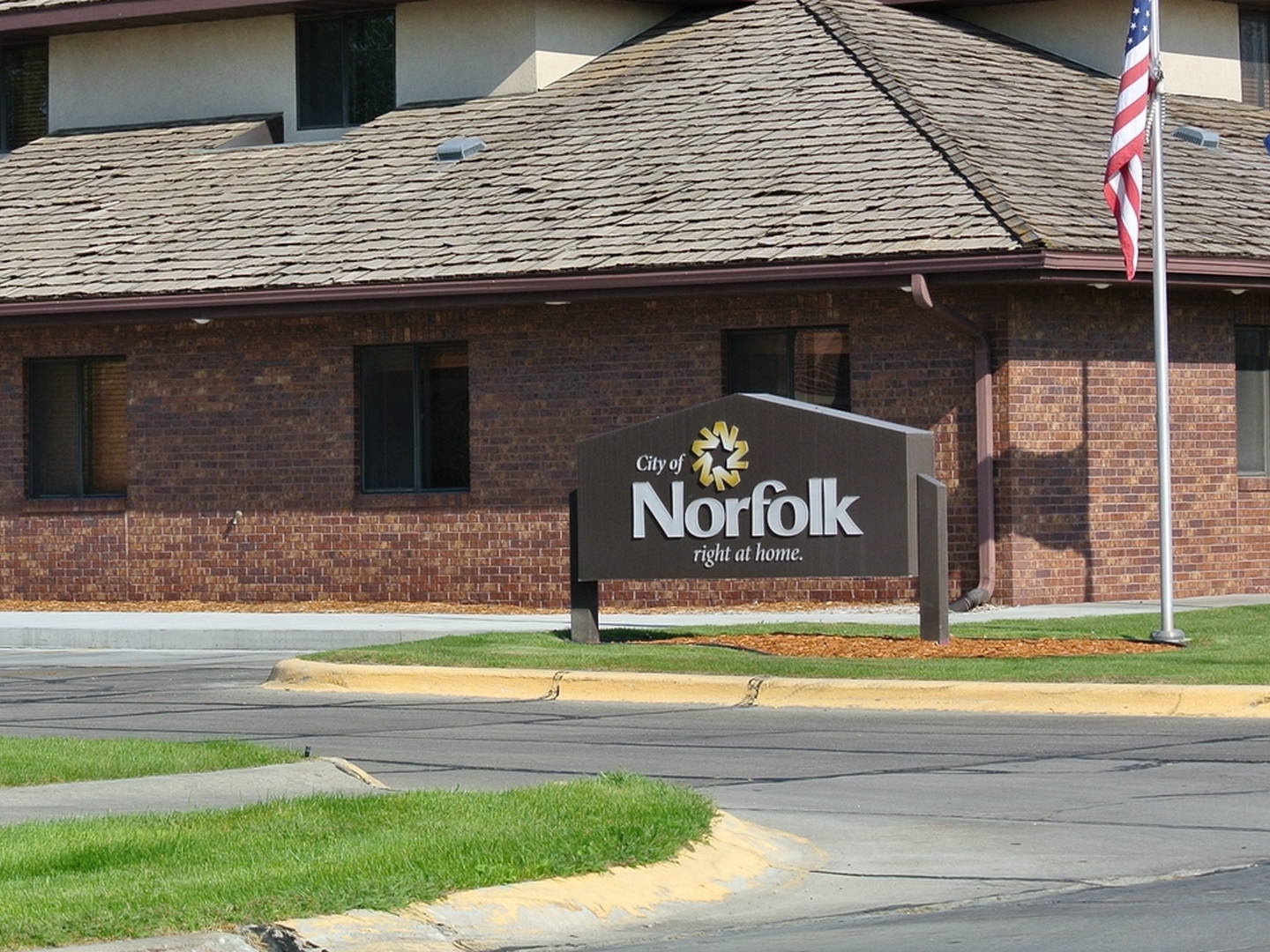In 2017, the Norfolk Transfer Station applied for the Recycling Equipment Grant from the Nebraska Environmental Trust (NET) to help purchase a new composting machine. The Recycling Equipment Grant from the Nebraska Recycling Council is one of 85 grant projects in 2017 receiving $16.6 million in grant awards from Nebraska Environmental Trust. The Trust is funded by proceeds from the Nebraska Lottery and has awarded more than $265 million to over 2,000 natural resource projects in Nebraska since 1993. The Nebraska Recycling Council is a non-profit, membership organization of public and private organizations, as well as individuals, and has been a recycling advocate for Nebraska since 1980.
The Norfolk Transfer Station ordered the machine in 2018 at a cost $31,000 with the NET grant supplying $20,000, paying for 2/3 of the machine. The Transfer Station crew was able to put it to use at the beginning of this year.
From April 1 through November 30 of each year, State law prohibits mixing grass clippings and leaves with household trash headed for the Coalition landfill. The City of Norfolk Transfer Station uses the composting machine to turn yard waste into a beneficial organic compost for residential use.
Organic compost is produced primarily from grass clippings, leaves and wood chips. Compost is a humus-like material that looks like dark topsoil and may contain small amounts of sticks or woody material. It has an earthy aroma and is high in organic matter containing other nutrients such as phosphorus and potassium.
Organic compost will improve the health of your soil and its structure. Beneficial microbes in compost aide in reducing soil diseases. Compost decreases the bulk density of the topsoil and increases moisture retention in the soil. Plants will benefit from healthy soils. Organic compost promotes increased root and leaf development and flower, fruit or vegetable production.
Improving Clay and Sandy Soils: Applying organic compost to clay or sandy soils will improve the porosity, water holding capacity, and nutrient content while adding beneficial microorganisms to the soil. Application rates depend on the amount of clay or sand in the soil.
Blending Topsoil/Establishing New Lawns: When making blended topsoil, the recommended mixture is one part compost mixed with four parts soil. To establish a new lawn, apply one inch or organic compost to the topsoil and mix thoroughly within the subsoil.
Flower and Vegetable Gardens: Compost may be used to enrich the soil in flower and vegetable gardens. Apply a one-inch layer of compost over the entire garden area and till into six inches of soil.
Compost is available free of charge on a first come, first served basis for those who load it themselves. This can be done anytime during operating hours. The Transfer Station will load small loads for $10.00 per load. Loading is available Monday – Friday from 8:00 am – 3:00 pm. The Transfer Station is located at 600 E. Monroe Ave.
